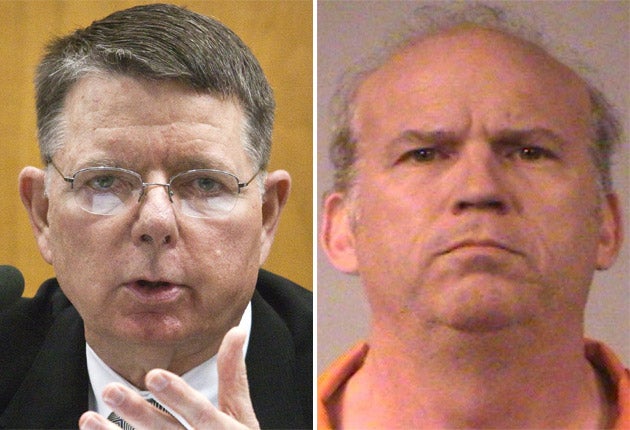Pro-life zealot on trial over US murder of 'hated' doctor

Your support helps us to tell the story
From reproductive rights to climate change to Big Tech, The Independent is on the ground when the story is developing. Whether it's investigating the financials of Elon Musk's pro-Trump PAC or producing our latest documentary, 'The A Word', which shines a light on the American women fighting for reproductive rights, we know how important it is to parse out the facts from the messaging.
At such a critical moment in US history, we need reporters on the ground. Your donation allows us to keep sending journalists to speak to both sides of the story.
The Independent is trusted by Americans across the entire political spectrum. And unlike many other quality news outlets, we choose not to lock Americans out of our reporting and analysis with paywalls. We believe quality journalism should be available to everyone, paid for by those who can afford it.
Your support makes all the difference.It was at a church in rural Kansas in May that the doctor who had become the ultimate hate figure for the United States's "pro-life" movement was shot dead. Yesterday a court in Wichita began hearing evidence against the man accused of murdering him.
The case of Dr George Tiller, one of the last doctors in the country to continue to practise late terminations in defiance of the anti-abortionists, reveals how polarised and how fiercely, sometimes homicidally emotional the struggle between the two sides has become. The trial, like the events surrounding the murder itself, will be closely scrutinised by both sides in the abortion debate in America. Dr Tiller had been a prime target of abortion opponents for more than 25 years, keeping his Wichita clinic open for years in spite of repeated assaults against the property and indeed against himself.
The right-to-life movement was quick to condemn the murder, but nonetheless has since found itself on the defensive over it.
Yesterday the court heard evidence from Gary Hoepner, a witness to the killing who by his own testimony might well have become a second victim.
Dr Tiller was a regular usher at the Reformation Lutheran Church in Wichita and Mr Hoepner was serving as an usher alongside him on Sunday 31 May. Morning service had just ended and he and Dr Tiller were reaching for doughnuts at the snack table when, according to Mr Hoepner, the defendant came up to the doctor and shot him in the head at close range.
Mr Hoepner was one of several people in the church that Sunday morning or in the parking area outside who were called upon to describe the scene when Dr Tiller was killed. The man he claimed pulled the trigger is Scott Roeder of Kansas City, Missouri, who has been charged with gunning down the 67-year-old physician.
Mr Hoepner testified that at first he didn't know if the gun was real because it made a sound like a pop gun.
"George fell to the ground and I just said in my mind 'oh my God'," he told the court. "It was surreal, it sounded like a pop-gun". Mr Hoepner recalled instinctively running after the defendant after he left the church, but stopped when the man turned and told him: "I've got a gun and I'll shoot you." He told the judge: "I believed him and I stopped. I don't argue with a man with a gun."
Mr Roeder, 51, has been charged with premeditated murder and two counts of aggravated assault, one against Mr Hoepner. He had a history of evangelising against Dr Tiller and other abortion doctors in online postings where he sometimes went by the name of "ServantofMessiah".
He has not admitted guilt in the case, but in an interview in his prison cell he told one journalist that if he was to be convicted his motive for the killing was to protect the unborn. If he is convicted of first-degree murder he faces life in prison, with the possibility of parole after 25 years.
Dr Tiller was shot in both arms by an anti-abortion activist in 1993 and was frequently threatened with violence.
Abortions were declared legal by the Supreme Court in its landmark Roe v Wade ruling of 1973, but as the Tilley murder trial proves, the issue remains profoundly divisive. "This is so much more than just a murder in Wichita," said Gloria Allred, a prominent women's rights lawyer, told The New York Times.
Join our commenting forum
Join thought-provoking conversations, follow other Independent readers and see their replies
Comments